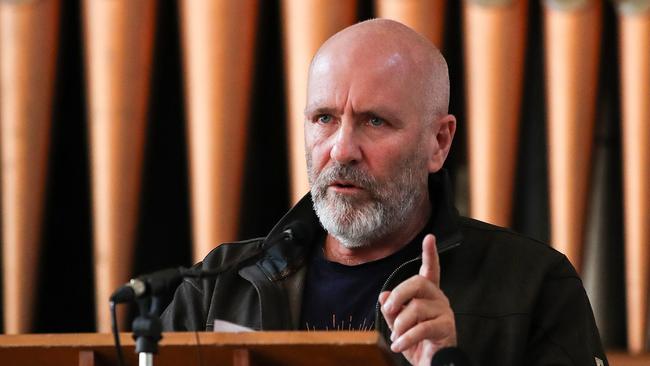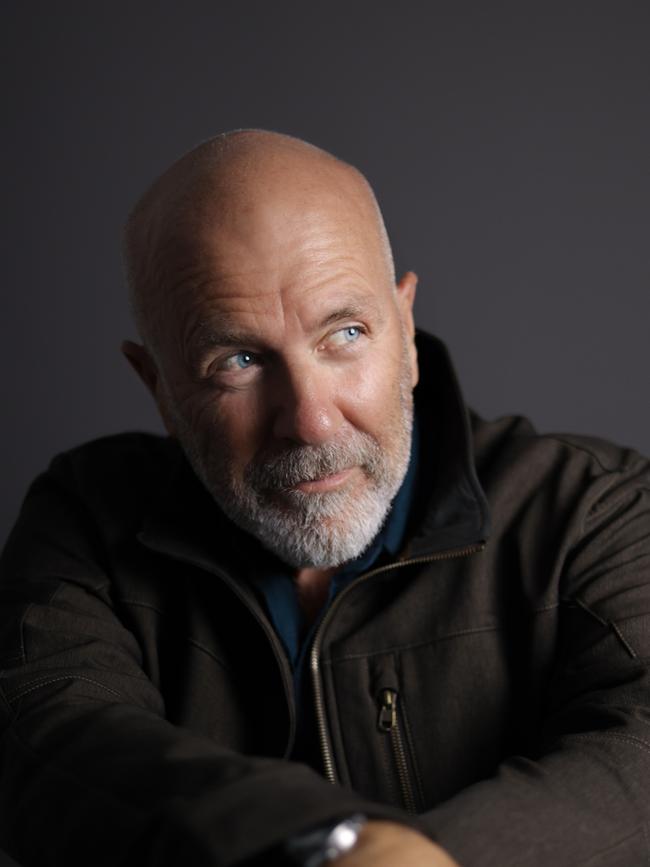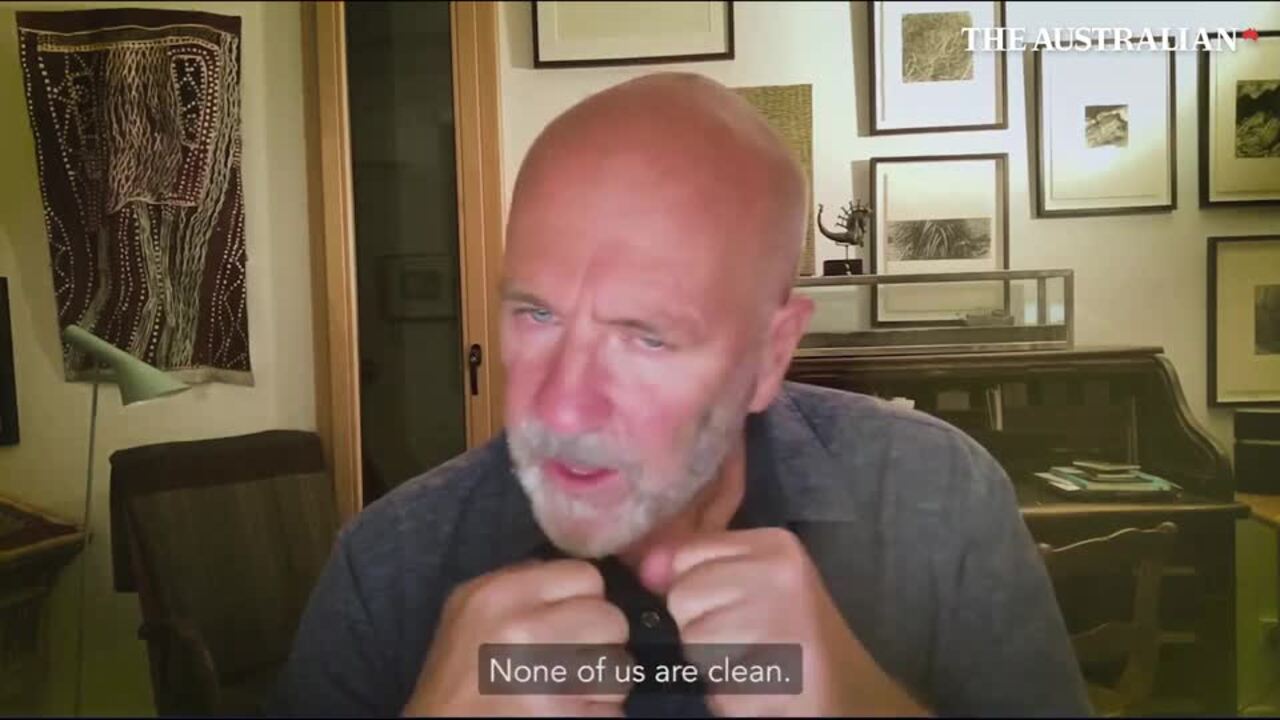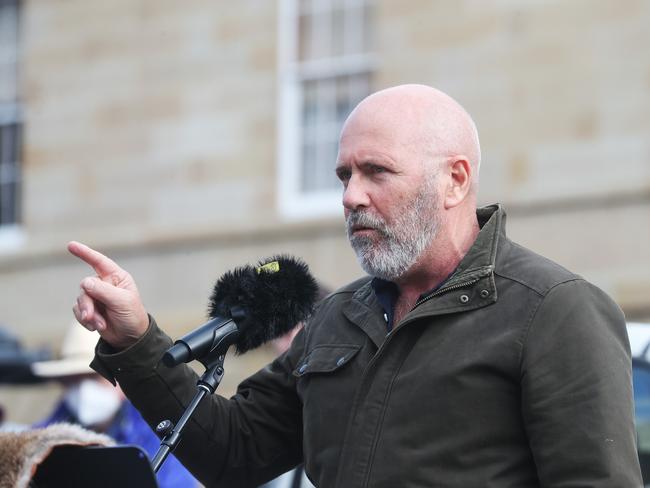Richard Flanagan’s book-prize protest over fossil fuels
WATCH | Tasmanian writer Richard Flanagan says he can’t immediately accept a $100,000 winner’s cheque from Baillie Gifford because the company invests in fossil fuels.

Richard Flanagan has won the UK’s most prestigious prize for nonfiction, but won’t immediately take the $100,000 in prize money because it comes from a sponsor that invests in fossil fuels.
Flanagan, who was trekking in his beloved Tasmania when his book, Question 7, won the Baillie Gifford Prize overnight, said in a recorded message that he couldn’t in good conscience take the money. “My soul would be troubled,” he said.

Baillie Gifford is an investment firm, and while Flanagan said he was grateful for its generosity, he wanted the company to “share with the public” a plan to reduce investment in fossil fuels, and increase investment in renewables.
He said he would welcome an opportunity to speak with Baillie Gifford’s board, to thank them and to “describe how fossil fuels are destroying” the planet.
Baillie Gifford was until this year a generous donor of both literature prizes and writers festivals across England. It withdrew its sponsorship from all major festivals, including the Hay festival, after it was hit by boycotts and protests, mainly from groups that oppose the company’s investments in Israel.
In his speech, Flanagan said: “Forgive me for not being with you tonight. I’m far way on the sixth day of a walk in the Tasmanian wilderness, off grid and uncontactable.” He thanked the judges, adding: “I thank, too, the sponsors, Baillie Gifford, for so generously supporting this prize, and for all they do, and have done, for literature.

“At a time of great duress for writers, Baillie Gifford’s sponsorship matters because it helps keep alive not just this prize, but literature … and I thank them for that larger gift.
“Yet my soul would be troubled if I did not say that the very rainforests and heathlands in which I am camped tonight … are existentially threatened by the climate crisis. And were I not to speak of the terrifying impact fossil fuels are having on my island home … I would be untrue to the spirit of my book.
“The world is complex. These matters difficult. None of us are clean. All of us are complicit. Major booksellers that sell my books are owned by oil companies. Major publishers that publish my friends are owned by fascists and authoritarians.

“No one tonight should regard my words as criticisms of Baillie Gifford. It’s the opposite. It is belief in Baillie Gifford’s good faith and the seeking of a way forward.
“When we stumble … it sometimes helps to have a friend to urge us on to our destination.
“I would welcome an opportunity to speak to Baillie Gifford’s board, both to thank them for their generosity, and also to describe how fossil fuels are destroying my country. I would urge (them) to share with the public a plan to reduce its already minimal direct investment in fossil fuel extraction and increase its investments in renewables.
“In accepting this prize, and the prize money that goes with it, I have a small caveat: I will delay taking receipt of the money until the day that plan is announced. And on that day, I will be grateful.
“Question 7 is about hope. I thank you for the prize, and the great honour that goes with it, in the same spirit.”
Baillie Gifford withdrew its support for UK literary festivals after boycotts were organised by a group called Fossil Free Books. Fossil Free Books also demands an end to investment in companies linked to Israel, as it believes “solidarity with Palestine and climate justice are inextricably linked”.
One of the judges of the Baillie Gifford prize, Heather Brooke, said: “We all knew, as soon as we read (Question 7) that it was extraordinary … it was the standout.” Fellow judge Chitra Ramaswamy said it was “a stone-cold masterpiece … it’s also one of the best books I’ve ever read in my life.”
In his review for The Australian, chief literary critic Geordie Williamson said it was a defence of literature, a meditation on violence in human history, a complex account of filial piety and a prose-poem sung for the author’s home island.
Flanagan is the first writer to win both the Baillie Gifford and the Booker Prize. The organisers said the “double” was an achievement that “affirms him as one of the most significant and acclaimed writers in the English language”.
Flanagan won the Booker Prize for The Narrow Road to the Deep North.




To join the conversation, please log in. Don't have an account? Register
Join the conversation, you are commenting as Logout